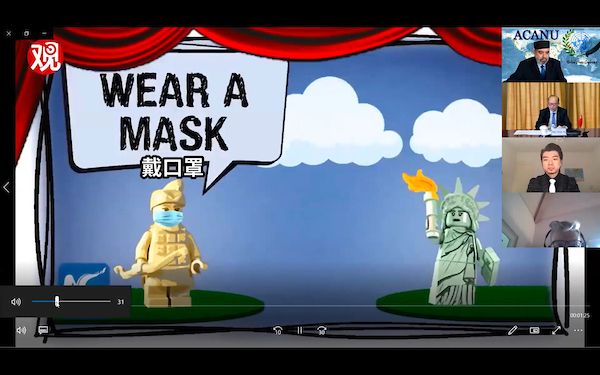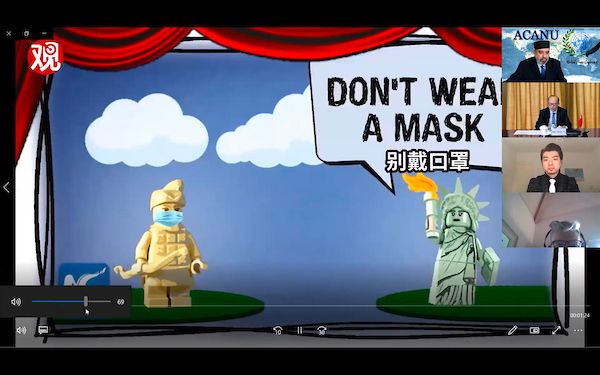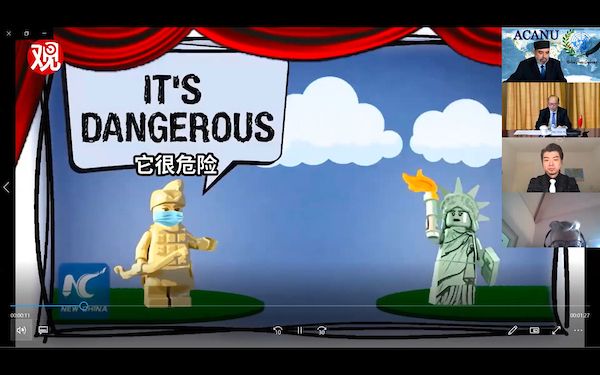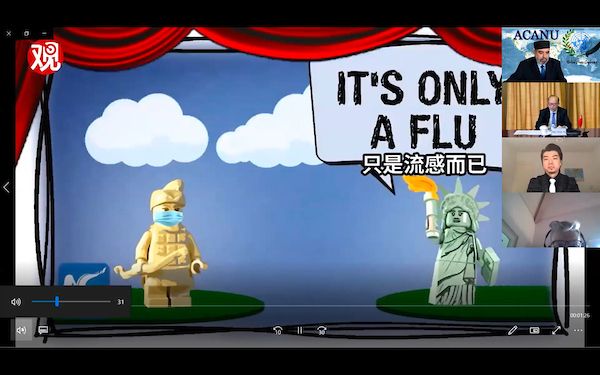
China's trolling diplomats
Alain Frachon | Chinese diplomats no longer dine with the observers of the international scene; they vehemently ‘trolls’ on social media—those same social media sites that are banned in China.
By Alain Frachon*
Since the 80s, journalists working on foreign affairs have been used to meeting regularly with a key fixture on the European scene: ‘the Chinese diplomat.’
We would lunch two or three times a year—in Chinese restaurants. We would struggle with chopsticks, which would, in the conversation, put us at a disadvantage. But ‘the Chinese diplomat,’ man or woman, was always a courteous character who knew the briefs, the Chinese economy’s latest dazzling feats, and Beijing’s positioning on the strategic issues of the day.
‘The Chinese diplomat’ tended to be young, not particularly highly-placed within the embassy hierarchy, and fluent in French—while our Mandarin was dire. To be honest, ‘the Chinese diplomat’ was most interesting when, during the conversation, he would surrender some snippets of information about himself. The typical profile: he or she would have learned French at university, passed the pitiless foreign affairs concours through tireless work and, often, had begun their career in the Maghreb or West Africa. These first steps incarnated an admirable meritocracy, reflecting the formation of an immense Chinese middle class whose story of emergence has not been told —nor commended—enough.
But now, it’s over. ‘The Chinese diplomat’ of years gone by, whose person gave a good impression of China, is no longer. They have disappeared. A character rejected in Beijing’s new diplomacy.
Instead, we have the diplomacy of President Xi Jinping, of a China that exhibits its will for power, announcing the grand return of an ideologically-driven foreign policy. Chinese diplomats no longer dine with the observers of the international scene; they vehemently ‘troll' on social media—those same social media sites that are banned in China. They no longer converse over Peking duck; they toe—and fight for, online—the Party line.
China has called it ‘Wolf Warrior diplomacy,’ after the Chinese film series of the same name where a former special forces Chinese Rambo triumphs over a band of American mercenaries. The demonization of the West—the idea of liberal democracy branded as ‘hostile’—is at the heart of Xi Jinping’s thinking. The ‘Wolf Warrior diplomat,’ posted in Europe, Canada, or Australia, is charged with an important mission: to answer, blow-by-blow, the least criticism of Chinese politics.
In the 2017 film, the Wolf Warrior hero takes up an old imperial Han Dynasty slogan: “Anyone who offends China, no matter how remote, must be exterminated.” In real life, this resulted in a tweet by the Chinese Ambassador to France during our confined autumn that was as false as it was insulting: the Wolf Warrior wrote that personnel in France’s retirement homes had “fled,” leaving pensioners to “die of hunger and illness” all across the country. Why so much hate?
In Geneva, in front of the same journalists that Xi Jinping had cleared from the UN during his 2017 visit, the Wolf Warrior uses a propagandistic animated cartoon to denounce Washington’s mismanagement of the pandemic.






Slides from an animated cartoon shown to the UN press in Geneva. From ""Once upon a Virus," a photographic essay by Mark Henley. Photo © Mark Henley
This new ‘trolling’ diplomacy needs to be contextualized in Xi Jinping’s governance. The Party is once again at the heart of everything: public and private sectors. Leninist-Marxism with Chinese flavor is on the menu: in the civil service, in schools and universities, and in companies. The least dissidence is punished.
What matters is the militant, not the expert. Who is meant to read the Chinese embassy’s tweets, written in (good) French, and relaying an image of France that is as crude as the image disseminated on Russian propaganda channel RT or Sputnik? The answer is no one. The tweet is destined for the party in Beijing, not for the French. Promotions depend on the Party, on militancy, not on expertise about France. The Diplomat and The Wall Street Journal, among others, have described well the Party hardliners’ supervision of the ministry for foreign affairs.
This new diplomacy operates by trolling and sanctions. We’ve lost count of the countries—Germany, Australia, Czechia, Canada, Norway, and Sweden for a start—that have been the object of Chinese economic retaliatory measures. Why? Because they had crossed the party line—on COVID-19, on Taiwan, on Hong Kong and on the Uyghurs. Today, certain of its power and convinced of the weakness of the Western world, China intends to imprint its mark on the international order. China is leading a diplomatic offensive, as Europe did in the 19th century and the US in the second half of the 20th century.
The results are nonetheless mixed. The image of China is at its lowest in Europe and the US—not to mention in Africa and Asia. Wolf Warrior diplomacy has passed through there as well. Maybe it’s time to reinvent the old ‘Chinese diplomat’—the one who preferred the art of conversation to the art of trolling.
-AF
*Alain Frachon is an editorial writer for Le Monde and an expert on foreign relations. He is the author of several books, among them La Chine contre l'Amérique:le duel du siècle.
